Ruaa Visual Art Where Creativity Meets Digital Mastery!
Places/Locations Vocabulary
Talking about places and locations is essential for giving directions, describing areas, and discussing geography. Whether you’re traveling or talking about your hometown, knowing the right terms helps you navigate and interact with others. The Places/Locations Vocabulary section will help Owais, Ruaa, and Ruba talk about neighborhoods, landmarks, and places they’ve visited or plan to visit. With Teacher Waleed’s guidance, they’ll learn how to use location-related vocabulary to navigate the world and communicate effectively. Explore more vocabulary related to places and locations to enrich your conversations at ruaainfinite.com!
🐾 Vocabulary Highlights:
- Park
A public area with trees, grass, and places for recreation or relaxation.
o Waleed took Ruaa and Owais to the park for a picnic.
o Ruba enjoys jogging in the park every morning.
o Owais asked for directions to the nearest park while traveling. - Mall
A large building with many shops and facilities.
o Ruaa went to the mall to buy a gift for Ruba.
o Owais enjoys spending weekends shopping at the mall.
o Waleed explained how to locate specific stores in the mall. - Hospital
A place where people go for medical treatment.
o Owais visited the hospital to check on a friend.
o Waleed taught Ruaa how to ask for the emergency room at a hospital.
o Ruba volunteered at the children’s ward in a hospital. - Market
A place where people buy and sell goods, often in an open area.
o Ruba went to the market to buy fresh vegetables.
o Owais helped Ruaa bargain for a good price at the market.
o Waleed guided Ruaa to find the best market for traditional items. - School
A place where students go to learn.
o Ruaa and Ruba attended the same school when they were younger.
o Waleed explained how to ask for the location of a school in English.
o Owais took a tour of the new school in his neighborhood. - University
A higher education institution for advanced studies.
o Ruba enrolled in a language course at the university.
o Owais toured a prestigious university during an open house.
o Waleed explained how to navigate a university campus in English. - Airport
A location where airplanes take off and land.
o Owais went to the airport to catch an early flight.
o Ruaa and Ruba learned how to ask for directions to the check-in counters at the airport.
o Waleed demonstrated phrases for navigating an international airport. - Train Station
A facility where trains stop for passengers to board or exit.
o Waleed showed Ruaa how to ask for the train schedule at the station.
o Owais took a train from the main station to a nearby city.
o Ruba bought tickets for a trip at the train station counter. - Library
A quiet place where people read or borrow books.
o Ruba spent hours studying at the library.
o Waleed taught Owais how to ask for specific books in a library.
o Ruaa borrowed a novel from the community library. - Restaurant
A place where meals are served to customers.
o Owais invited Ruba to a restaurant for dinner.
o Ruaa asked Waleed for help ordering food in English at a restaurant.
o Waleed explained how to ask for recommendations at a restaurant. - Beach
A sandy or rocky area by the sea.
o Ruaa enjoyed collecting seashells on the beach.
o Owais took Ruba for a walk along the beach during sunset.
o Waleed taught phrases for talking about beach activities in English. - Museum
A place where historical, artistic, or scientific items are displayed.
o Owais visited a museum to learn about local history.
o Ruba and Ruaa attended an art exhibition at the museum.
o Waleed explained how to ask for guides in a museum. - Cinema
A place where people watch movies.
o Ruba went to the cinema to see the latest film with Ruaa.
o Owais reserved tickets for a movie at the cinema.
o Waleed taught Ruaa phrases to describe their favorite scenes from a movie. - Post Office
A place where people send and receive mail.
o Ruaa mailed a letter to her friend from the post office.
o Owais asked for the nearest post office to send a package.
o Waleed explained how to ask for stamps at the post office. - Hotel
A building where travelers stay overnight.
o Ruba checked into a hotel during her trip.
o Owais asked the hotel receptionist for directions to nearby attractions.
o Waleed taught Ruaa how to make a hotel booking in English. - Zoo
A place where animals are kept for public viewing.
o Ruaa and Ruba enjoyed watching the lions at the zoo.
o Owais took his nephew to the zoo for a fun day out.
o Waleed explained how to describe different animals seen at the zoo. - Pharmacy
A place where medicines are sold.
o Ruba went to the pharmacy to buy some vitamins.
o Waleed helped Ruaa learn how to ask for over-the-counter medicines in English.
o Owais located the nearest pharmacy using an online map. - Masjid/Mosque
A place of worship for Muslims.
o Waleed guided Ruaa and Ruba on how to talk about Mosques in English.
o Owais visited the Masjid for Friday prayers.
o Ruba and Ruaa described the mosque’s beautiful design in their conversation. - Bank
A place where financial transactions are conducted.
o Owais opened a new account at the bank.
o Ruaa asked Waleed for help understanding terms used at the bank.
o Ruba went to the bank to withdraw cash. - Church
A place of worship for Christians.
o Waleed taught them how to ask about church services in English.
o Jami visited a church while traveling to learn about its history.
o Rami took photos of the architecture of a church. - Bridge
A structure built to cross over a river, road, or other obstacles.
o Owais drove across the bridge on his way to work.
o Ruaa and Ruba took photos of the view from the bridge.
o Waleed explained how to describe landmarks like bridges in English.
Places/Locations Vocabulary (Continued) - Amusement Park
A place with rides, games, and attractions for entertainment.
o Ruaa and Ruba spent the weekend enjoying roller coasters at the amusement park.
o Owais tried a new virtual reality ride at the amusement park.
o Waleed explained how to ask for ticket prices at an amusement park. - Farm
A location where crops are grown, and animals are raised.
o Owais helped feed the animals on the farm during his visit.
o Ruaa and Ruba learned about sustainable farming on a local farm tour.
o Waleed taught phrases to describe activities on a farm in English. - Factory
A place where goods are manufactured.
o Ruba visited a factory to learn about how products are made.
o Owais asked for safety instructions before entering the factory.
o Waleed explained how to describe the production process in a factory. - Port
A harbor where ships dock for loading and unloading goods.
o Owais took Ruaa to the port to see the large cargo ships.
o Ruba enjoyed a boat tour that started from the port.
o Waleed described how to ask for directions to the port in English. - Harbor
A sheltered area along the coast where ships dock.
o Ruaa took a ferry ride from the harbor to a nearby island.
o Owais admired the fishing boats returning to the harbor at sunset.
o Ruba explored the shops and restaurants near the busy - Stadium
A large venue for sports or concerts.
o Owais attended a football match at the stadium with friends.
o Ruba enjoyed a live concert held at the local stadium.
o Waleed taught Ruaa how to ask for seats at a stadium. - Temple
A Spiritual practice, often associated with certain religions.
o Ria explored a temple while traveling abroad.
o Rami asked if guided tours were available at the temple..
o Waleed explained cultural phrases related to temples in English. - Cabin
A small house, usually in a rural or forested area.
o Owais rented a cabin for a weekend retreat in the mountains.
o Ruba and Ruaa described their cozy cabin experience in a group discussion.
o Waleed showed how to book a cabin online using English. - Tower
A tall structure, often a landmark or observation point.
o Ruaa and Ruba climbed the tower to enjoy the panoramic view.
o Owais asked a guide about the history of a famous tower.
o Waleed taught how to describe a tower’s height and features in English. - Square
An open public area in the center of a town or city.
o Ruaa enjoyed sitting at the square, watching street performers.
o Owais took photos of the historic buildings surrounding the square.
o Waleed explained how to ask for activities happening in the square. - Bakery
A place where bread, cakes, and pastries are made and sold.
o Ruba bought fresh bread from the local bakery.
o Owais asked for a recommendation for the best bakery in the area.
o Waleed taught Ruaa how to describe different baked goods in English. - Gym
A facility for exercising and fitness.
o Owais registered for a new membership at the gym.
o Ruba described her weekly workout routine at the gym.
o Waleed explained how to ask for the location of equipment in a gym. - Warehouse
A large building where goods are stored.
o Ruaa explored how inventory is managed in a warehouse.
o Owais supervised the shipment process at a warehouse for his job.
o Waleed taught how to describe a warehouse’s layout in English. - Fountain
A decorative structure that sprays water, often found in public places.
o Ruba and Ruaa admired the beautiful fountain in the city park.
o Owais sat near the fountain to relax after a long day.
o Waleed taught phrases for describing fountains in English. - Parking Lot
A designated area for parking vehicles.
o Ruaa struggled to find her car in the large parking lot.
o Owais reserved a parking spot at a busy mall.
o Waleed explained how to ask for parking rules in English. - Bus Terminal
A central station where buses pick up and drop off passengers.
o Owais bought a ticket at the bus terminal for his trip.
o Ruaa asked for the departure platform at the terminal.
o Waleed demonstrated how to ask for a bus schedule in English. - Cliff
A steep, high rock face, often overlooking the sea.
o Ruba enjoyed taking photos from the top of the cliff.
o Owais hiked to the edge of the cliff for a breathtaking view.
o Waleed taught how to describe landscapes with cliffs in English. - Monument
A structure created to honor a person or event.
o Owais visited a monument dedicated to local heroes.
o Ruaa described the intricate details of a historical monument.
o Waleed explained how to ask for information about monuments in English. - Ferry Terminal
A docking area for ferries transporting people or vehicles across water.
o Ruba bought tickets at the ferry terminal for a short sea trip.
o Owais asked about ferry schedules at the terminal.
o Waleed taught Ruaa how to navigate a ferry terminal in English. - Observatory
A building designed for observing stars and planets.
o Ruaa and Ruba explored the night sky at the observatory.
o Owais asked the astronomer questions during a tour of the observatory.
o Waleed taught phrases for describing constellations at an observatory. - Warehouse
A large building used for storing goods, often for commercial purposes.
• Ruba managed inventory at a large warehouse for an online store.
• Owais inspected the safety measures in a new warehouse.
• Waleed explained to Ruaa how warehouses support businesses globally. - Skyscraper
A tall, multi-story building, typically in urban areas.
• Ruaa marveled at the view from the top floor of a skyscraper.
• Owais described how skyscrapers are built to withstand earthquakes.
• Ruba worked in a modern skyscraper with glass walls. - Courthouse
A building where legal cases are heard and decided.
• Owais attended a public trial at the courthouse to learn about the legal system.
• Ruba asked the clerk at the courthouse about filing a document.
• Waleed explained the layout of a typical courthouse to Ruaa. - Tunnel
A passageway built underground or through a mountain, often for vehicles or trains.
• Ruba traveled through a tunnel that connected two cities.
• Owais explained how tunnels are engineered to stay safe during earthquakes.
• Ruaa took pictures of an artistic tunnel designed for pedestrians. - Subway Station
A facility where underground trains pick up and drop off passengers.
• Ruaa bought a ticket at the subway station for her morning commute.
• Owais learned how to navigate subway stations using a map.
• Ruba asked for assistance finding the correct platform at a busy subway station. - Campground
A designated area for camping with facilities like fire pits and bathrooms.
• Owais set up his tent at a peaceful campground by the lake.
• Ruba cooked dinner over an open fire at the campground.
• Ruaa enjoyed hiking trails that started near the campground. - Highway
A major road designed for fast travel between cities or regions.
• Ruba drove on the highway to reach a remote town.
• Owais stopped at a rest area on the highway for a quick meal.
• Waleed taught Ruaa how to give directions involving highways. - Country
A nation with its own government and borders, typically larger than a town or city.
o Owais traveled to a new country to experience its culture.
o Ruaa enjoyed exploring the rural areas of the country during her vacation.
o Ruba studied the geography of different countries in school. - City
A large and densely populated area with a complex structure of governance, commerce, and services.
o Owais moved to the city for better job opportunities.
o Ruaa visited the city to see famous landmarks and museums.
o Ruba found the city to be very lively and exciting. - Town
A smaller settlement compared to a city, often with a close-knit community.
o Owais grew up in a small town where everyone knew each other.
o Ruaa found the town peaceful and relaxing compared to the busy city.
o Ruba moved to the town to escape the hustle and bustle of urban life. - Village
A small rural community, usually located in the countryside, with fewer facilities than a town.
o Owais visited a traditional village to learn about its culture.
o Ruaa’s grandparents live in a quiet village far from the city.
o Ruba spent the weekend in a village to enjoy the natural beauty. - Valley
A low area of land, often between hills or mountains, typically with a river or stream running through it.
o Owais hiked through a beautiful valley during his nature trip.
o Ruaa took a scenic drive through the valley, enjoying the lush greenery.
o Ruba loved the peacefulness of the valley when she visited her family. - Desert
A barren, dry area of land with little to no vegetation, often characterized by extreme temperatures.
o Owais went on a desert safari to explore the vast sand dunes.
o Ruaa learned about desert ecosystems in her geography class.
o Ruba dreamed of visiting the desert to see the beautiful sunsets. - Forest
A large area covered chiefly with trees and undergrowth, often home to various wildlife.
o Owais trekked through the forest on his camping trip.
o Ruaa took a walk in the forest to relax and connect with nature.
o Ruba volunteered for a wildlife conservation project in the forest.
o Waleed led a group of students through the Amazon Rainforest to explore its unique ecosystem. - Jungle
A dense, tropical forest found in warm, humid climates, often far from urban areas or towns. It’s home to a wide variety of plants and animals.
o Owais went on an adventure into the jungle to study its wildlife.
o Ruaa was excited to visit a jungle reserve to see exotic animals.
o Ruba was amazed by the dense foliage and the sounds of the jungle during her hike.
o Waleed guided his class through the Amazon Jungle, teaching them about its biodiversity and importance. - Mountain
A large landform that rises prominently above its surroundings, typically with steep sides and a peak.
o Owais climbed the mountain to reach the summit and enjoy the view.
o Ruaa planned a trip to the mountains for a skiing holiday.
o Ruba admired the mountain scenery during her hiking adventure. - Island
A piece of land surrounded by water, often smaller than a continent.
o Owais spent his vacation on a tropical island.
o Ruaa loved the idea of living on a quiet island away from the city.
o Ruba visited a beautiful island known for its coral reefs. - Coast
The land along the edge of the sea or ocean.
• Owais enjoyed long walks along the coast, watching the waves.
• Ruaa planned a beach holiday along the coast of Spain.
• Ruba wanted to live near the coast for the peaceful ocean views. - Peninsula
A landform that is surrounded by water on most sides but still connected to the mainland.
• Owais spent the weekend exploring the peninsula.
• Ruaa loved the scenery of the peninsula, surrounded by blue waters.
• Ruba took a boat tour around the peninsula to explore its coastline. - Bay
A body of water partially surrounded by land, typically smaller than a gulf.
• Owais enjoyed kayaking in the calm waters of the bay.
• Ruaa visited a beautiful bay known for its clear waters.
• Ruba took a boat ride across the bay during her holiday.. - Lake
A large, inland body of water, typically surrounded by land.
• Owais spent the weekend fishing by the lake.
• Ruaa went on a boat tour of the serene lake.
• Ruba took a walk around the lake and enjoyed the peaceful environment. - River
A large, flowing body of water that usually empties into a sea, ocean, or lake.
• Owais followed the river on his hike through the countryside.
• Ruaa admired the view of the river from the bridge.
• Ruba took a boat cruise along the river during her vacation. - Swamp
A wetland area, often characterized by stagnant water, mud, and vegetation.
• Owais visited a swamp to see the wildlife living there.
• Ruaa was amazed by the biodiversity in the swamp.
• Ruba took a guided tour through the swamp to learn more about its ecosystem. - Plateau
An area of flat, elevated land, often with steep sides.
• Owais took a road trip to explore the plateau region.
• Ruaa enjoyed hiking on the plateau, offering amazing panoramic views.
• Ruba studied the formation of plateaus in her geography class. - Canyon
A deep gorge, typically one with a river flowing through it, formed by erosion.
• Owais visited the Grand Canyon during his trip to the United States.
• Ruaa admired the stunning rock formations along the canyon walls.
• Ruba took a helicopter tour over the canyon to get a bird’s-eye view. - Hill
A raised area of land, smaller than a mountain, often covered with grass or trees.
• Owais hiked to the top of the hill to get a better view of the valley below.
• Ruaa enjoyed a picnic on a hill overlooking the town.
• Ruba liked to watch the sunset from the top of the hill. - Oasis
A fertile area in a desert, typically with a water source like a spring or a well.
• Owais was relieved to find an oasis after days of traveling through the desert.
• Ruaa took a rest at the oasis, enjoying the cool water and shade.
• Ruba heard about a famous oasis in the desert that was a popular stopping point for travelers.
The terms Port and Harbor are closely related but serve slightly different purposes:
Port
- Definition: A port is a broader term that refers to a harbor equipped with facilities for loading and unloading goods, passengers, and conducting trade operations. It includes docks, cranes, storage areas, and other infrastructure.
- Purpose: Ports are primarily commercial hubs used for international trade and transportation. They handle large cargo ships, passenger vessels, and often have customs facilities.
Examples:
- Owais took Ruaa to the port to see the large cargo ships.
(This emphasizes the port’s function as a place for large vessels involved in trade.) - Ruba enjoyed a boat tour that started from the port.
(Even leisure activities like boat tours can originate from ports.) - Waleed described how to ask for directions to the port in English.
(Focuses on practical communication skills related to ports.)
Harbor
- Definition: A harbor refers to a sheltered area along the coast where ships can anchor and dock, protected from rough waters and weather.
- Purpose: Harbors are designed primarily for safety and accessibility. While they can host commercial activities, they are also common for recreational and fishing vessels.
Examples:
- Ruaa took a ferry ride from the harbor to a nearby island.
(This highlights the harbor’s role as a departure point for ferries.) - Owais admired the fishing boats returning to the harbor at sunset.
(This focuses on the harbor as a place for smaller boats, especially for fishing.) - Ruba explored the shops and restaurants near the busy harbor.
(This emphasizes the harbor’s recreational and tourism aspects.)
Key Difference:
- Port: More focused on trade, commerce, and large-scale operations.
- Harbor: Primarily a safe anchorage and docking point, also used for smaller-scale or recreational activities.
Some people may think that a harbor is bigger than a port.
No, a port is generally bigger than a harbor because it includes a harbor but also has additional infrastructure and facilities for trade, cargo handling, customs, and passenger services. Here’s a clearer comparison:
Harbor
- Size: Smaller in scope, as it is primarily a sheltered area for ships to dock safely.
- Purpose: Provides protection and anchorage for ships, often catering to fishing, recreational boats, or small-scale docking.
- Examples: A fishing harbor or a harbor where people board ferries.
Port
- Size: Larger and more complex because it includes not just a harbor but also facilities like docks, storage areas, cranes, and transport links.
- Purpose: Handles large-scale commercial operations, including shipping, cargo handling, and international trade.
- Examples: A container port, a commercial port for exports/imports, or a passenger cruise port.
Relationship
- A port typically includes a harbor as its sheltered docking area but also has infrastructure for business and logistics.
- A harbor alone may exist without the extensive operations of a port.
Think of it like this:
- Harbor: The safe parking lot for ships.
- Port: The entire facility, including the parking lot, warehouses, loading docks, and administrative offices.
In summary, while all ports are harbors, not all harbors are ports. Ports are equipped for heavy-duty commercial activities, whereas harbors are mainly safe docking locations.
Extra Info:
The Forest and Jungle are both types of large, wooded areas, but there are key differences between them, and people often confuse the two due to their similarities. Here’s a clear explanation of their differences:
Forest
- A forest is a large area covered primarily by trees and other vegetation. It can be found in both temperate and tropical climates. Forests can vary greatly depending on their location.
- Types of Forests: There are many types of forests, such as tropical rainforests, temperate forests, and boreal forests.
- Climate: Forests can be found in both hot and cold climates (e.g., the Arctic’s boreal forests or the temperate forests in regions like Europe and North America).
- Vegetation: Forests generally have a well-developed structure with trees, shrubs, and other plants, but they might not always be as densely packed with vines and undergrowth as jungles.
- Wildlife: Forests are home to a variety of wildlife, but not necessarily the vast diversity of species often found in jungles.
Example:
- “Owais trekked through the forest on his camping trip.”
(The forest in this case could be a temperate or boreal forest, where there are plenty of trees but maybe less dense, tropical-like growth.)
Jungle
- A jungle is specifically a dense, tropical forest typically found in regions with high humidity, warmth, and heavy rainfall, often close to the equator. The term “jungle” is often used to describe the dense undergrowth or thick vegetation of tropical areas.
- Climate: Jungles are typically found in tropical climates where there is frequent rain, making them much denser and harder to navigate compared to other types of forests.
- Vegetation: The key feature of a jungle is its dense undergrowth, which includes vines, shrubs, and thick layers of plants that make movement challenging. The vegetation is often much more overgrown and untamed compared to forests.
- Wildlife: Jungles often support a higher density and diversity of wildlife compared to regular forests due to the abundant food and shelter offered by the dense vegetation.
Example:
- “Owais went on an adventure into the jungle to study its wildlife.”
(This suggests a tropical jungle, rich in biodiversity and dense growth that can be difficult to travel through.)
Key Differences:
- Location:
o Forests can exist in temperate or tropical climates.
o Jungles are a type of tropical forest, usually found near the equator in hot and humid regions. - Vegetation Density:
o Forests have a more open structure and less dense undergrowth (depending on the type).
o Jungles are characterized by dense, tangled vegetation, including thick vines and undergrowth. - Wildlife:
o Forests support a variety of wildlife but not to the same extent as jungles.
o Jungles are home to a greater variety of species due to the dense environment that provides plenty of resources. - Accessibility:
o Forests are generally more accessible and easier to explore than jungles.
o Jungles are often difficult to navigate due to the thick vegetation and wild terrain.
Conclusion:
- Forest is a more general term for large areas covered with trees, which can be in various climates.
- Jungle refers to a specific type of forest—dense, tropical, and usually difficult to navigate due to the abundance of undergrowth.
Note: The phrase “difficult to navigate due to the abundance of undergrowth” means that it is challenging to move through or travel across an area because of the dense vegetation (such as shrubs, vines, and small trees) that grows close to the ground.
- Undergrowth refers to the thick, low-growing plants and bushes that cover the forest floor or jungle. In jungles, this undergrowth is often very dense and tangled, making it hard for people to walk or move easily through the area.
So, when we say the Jungle is “difficult to navigate due to the abundance of undergrowth,” we mean that the thick plants and tangled vines make it hard to travel or even walk through the jungle because they can block the path or slow down movement.
Ready to Take the Next Step?
If you enjoyed the free sample lesson and are eager to dive deeper, our full Essential Survival English course is just a click away! Purchase now to enjoy curated lessons and start your journey toward mastering English for any situation with confidence!
Buy the Essential Survival English Course Now!
👉 Explore here!
Don’t miss out on the opportunity to elevate your English skills in a supportive community. Join us today and start your exciting journey with Ruaa Infinite!
📚🌍 Over 1,500 vocabulary words for daily use!
📢 Join us & spread the word!
✅ Thank you for your support! 💙
✨ Join the English Learning Revolution & Unlock New Opportunities with Ruaa Infinite!
👉 Explore here!
Let’s create a new world where communication skills are EASY! Whether you’re starting from scratch or aiming for fluency, Ruaa Infinite lessons are simple, effective, and FUN!
🔗 EXPLORE MORE:
• Shop courses & books to take your English to the next level: https://ruaainfinite.com/shop
• Discover inspiring content on Pinterest: https://www.pinterest.com/ruaainfnite/pins/
• Watch more engaging videos on YouTube: https://www.youtube.com/@RuaaInfinite
• Find our latest book releases:
👉 https://ruaainfinite.com/product-category/books/
👉 https://www.lulu.com/search?contributor=Ruaa+Infinite
Join 👉 https://t.me/LearnEnglishWithRuaaInfinite
👉 https://ruaainfnite.gumroad.com/
💬 Contact Us:
🌐 Website: ruaainfinite.com/contact
📧 Email: ruaainfnite@gmail.com
✨ Visit ruaainfinite.com to elevate your journey and take every step with confidence! 🚀
🔥Ruaa Digital Artwork brings nature and creativity to life with stunning digital visuals, perfect for art enthusiasts and learners alike! Make every step a success and boost your confidence. Visit the link above to get started! 🌟
Have a nice day ahead!
All the best,
Teacher Waleed Rizq
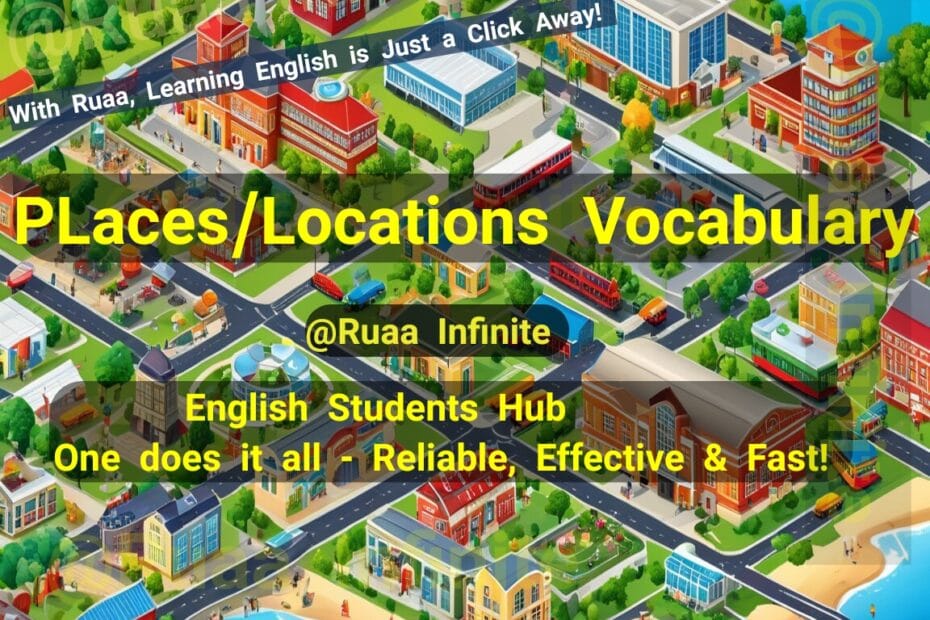
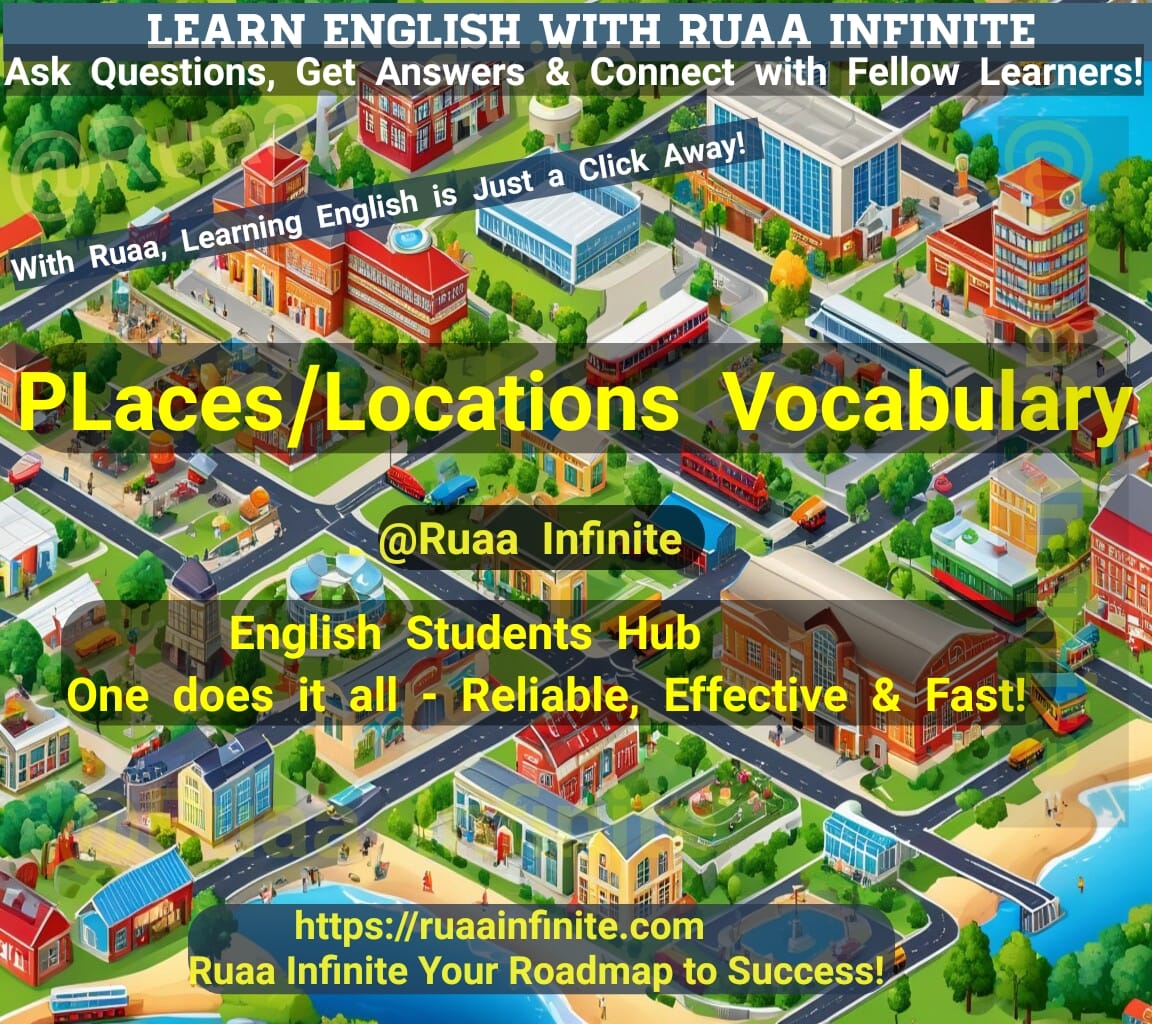
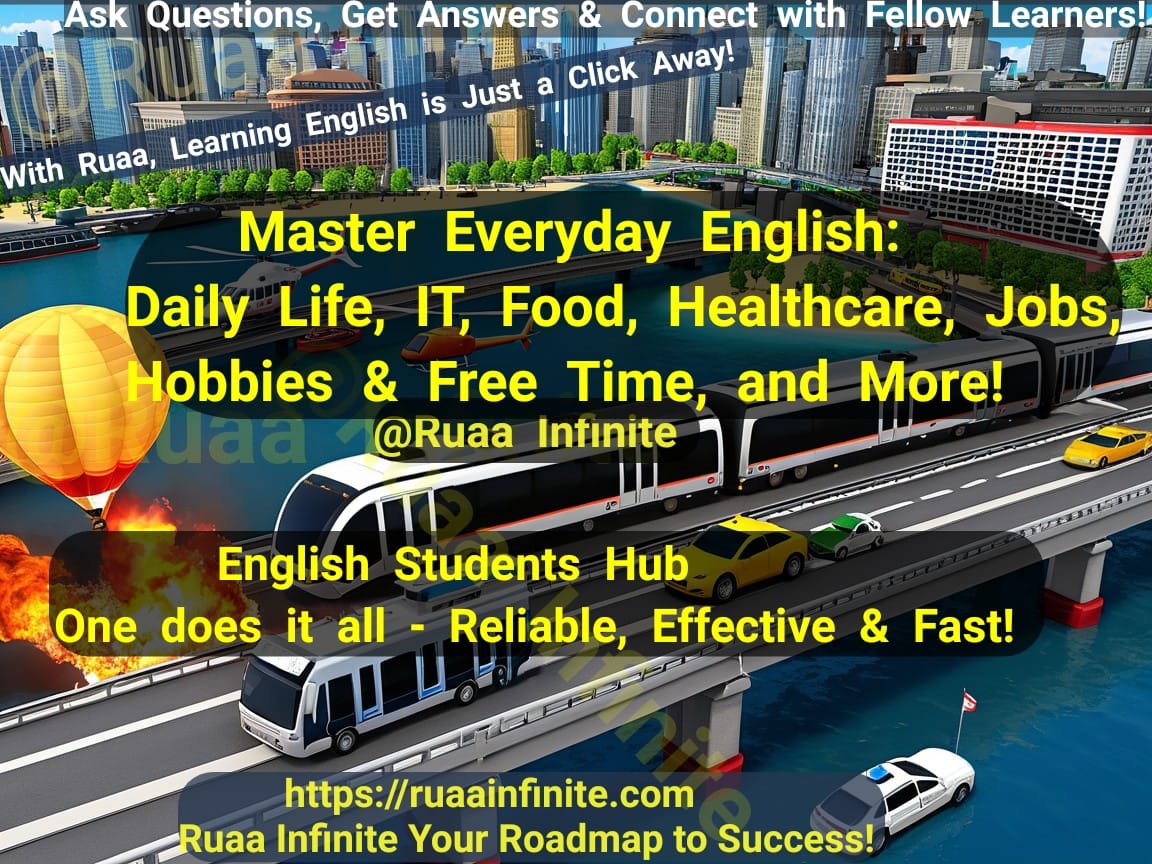
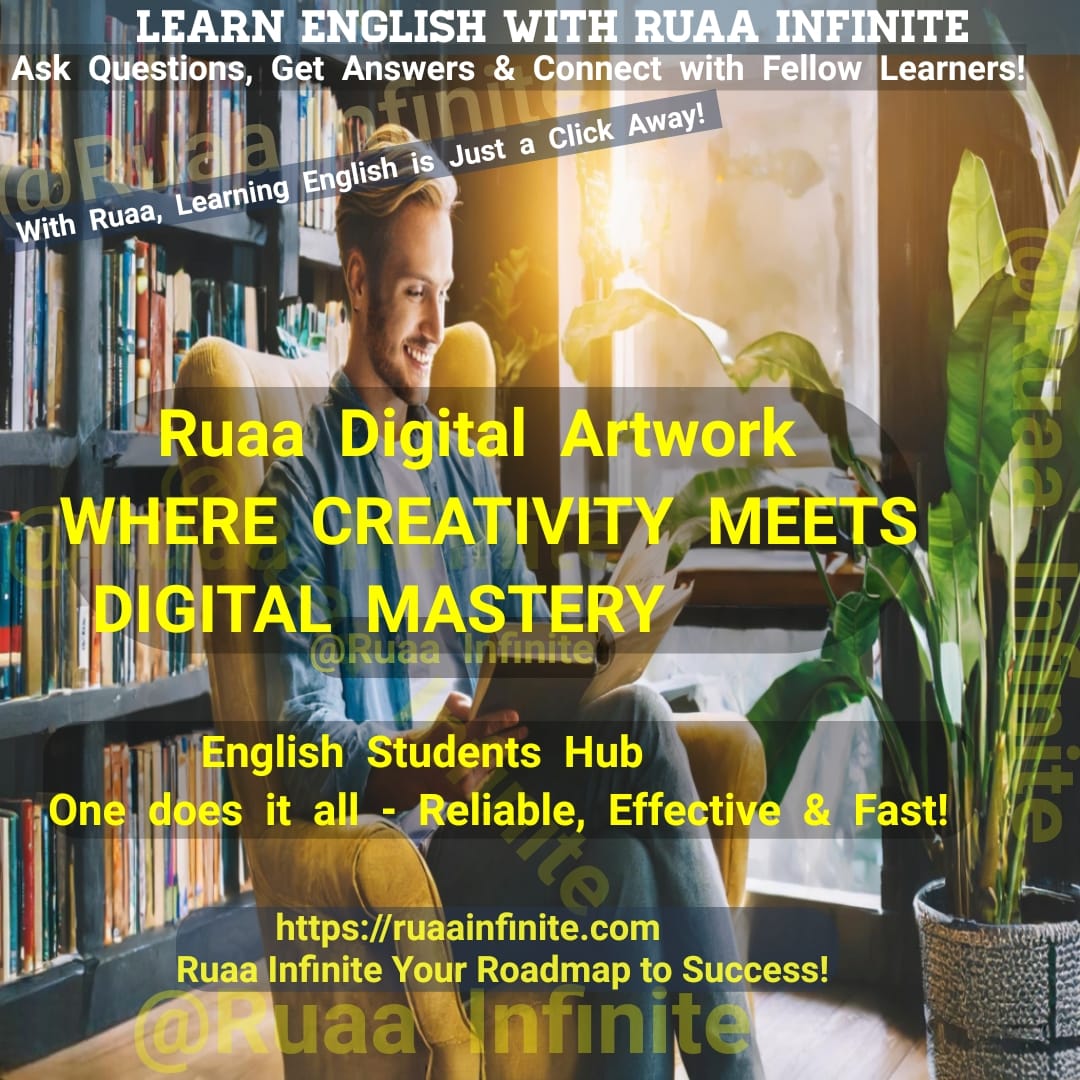
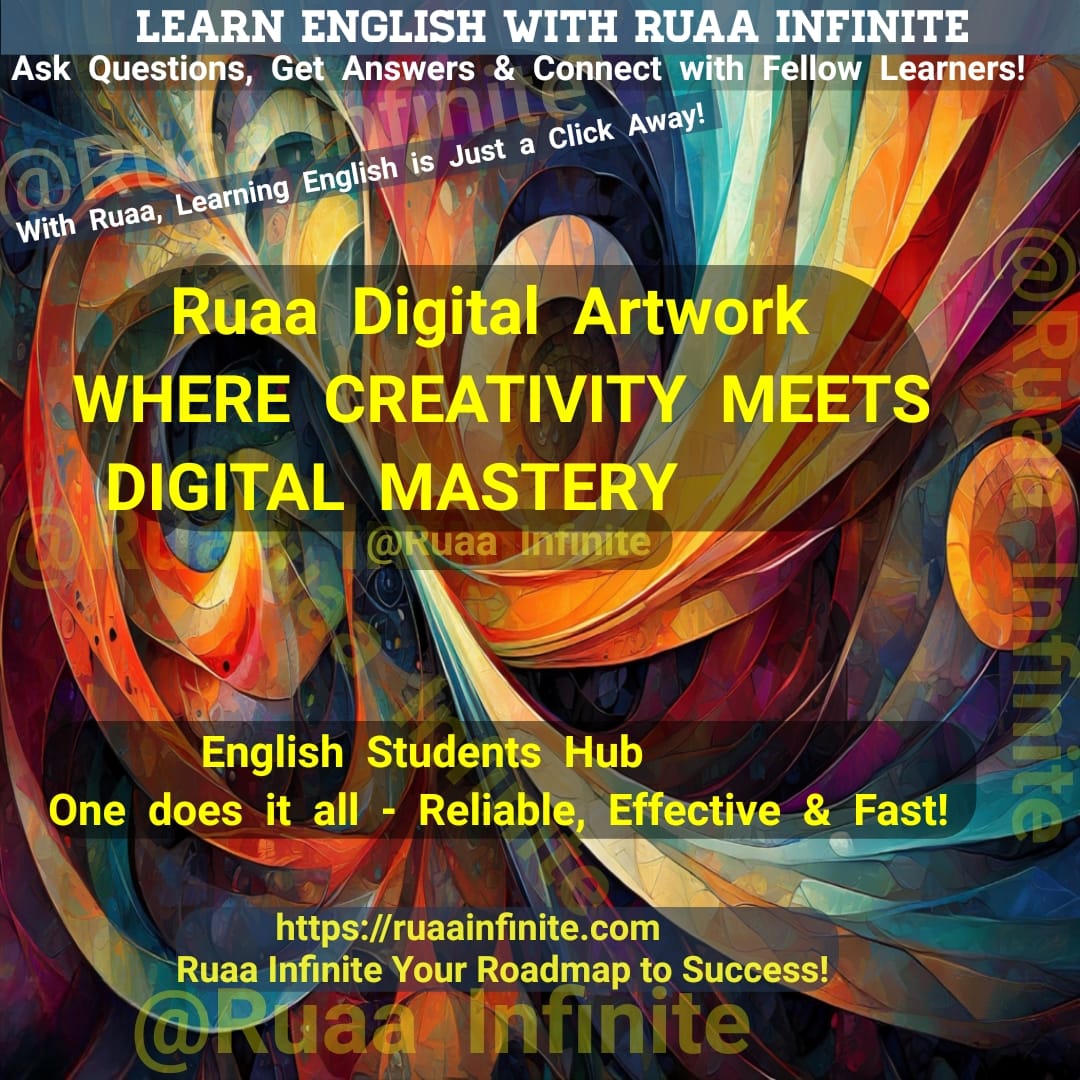
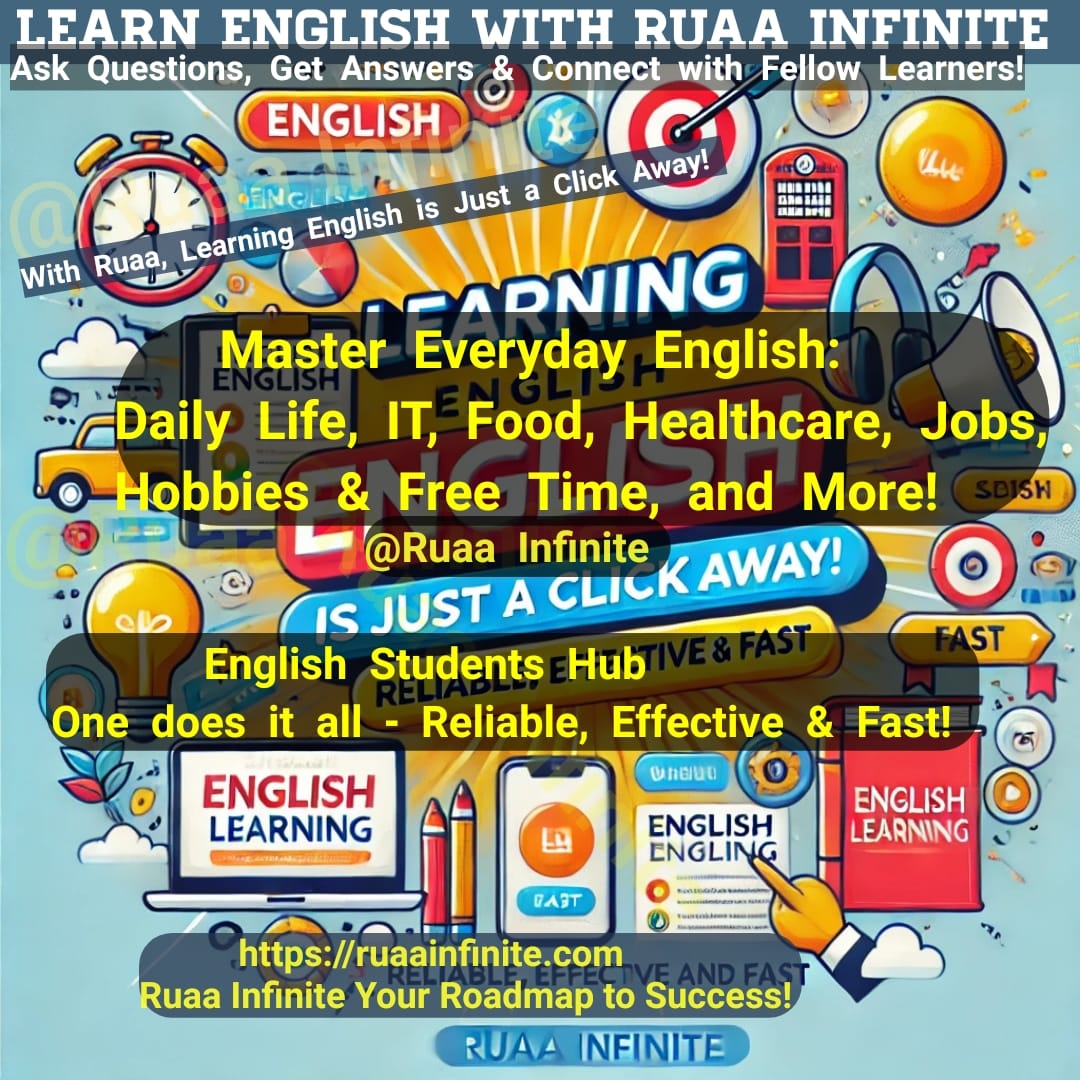
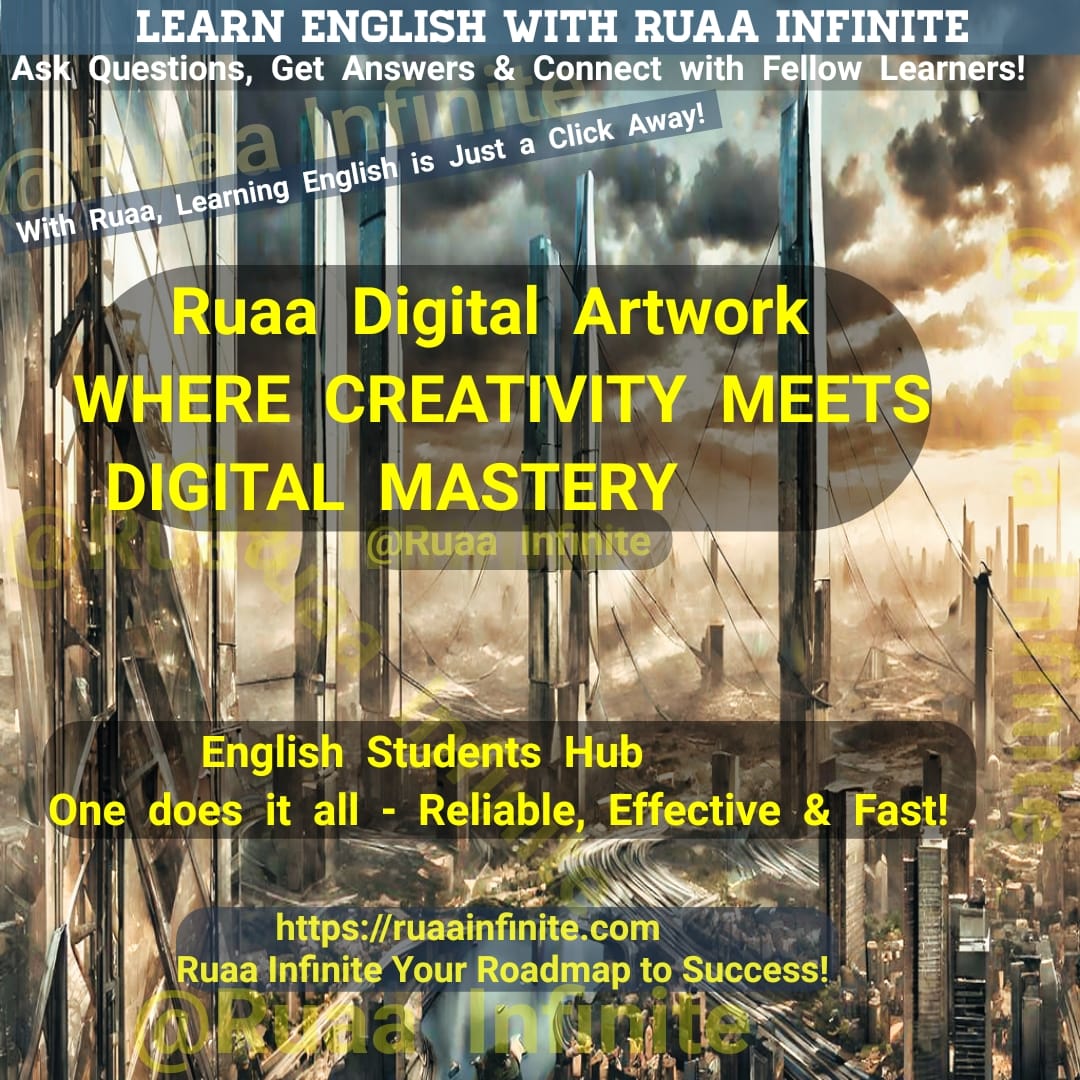

Master Places and Locations Vocabulary: Unlock the Language of Exploration!
Step into the world of places and locations with Teacher Waleed’s expert guidance. Enhance your vocabulary and gain confidence in discussing destinations, landmarks, and geographical features.